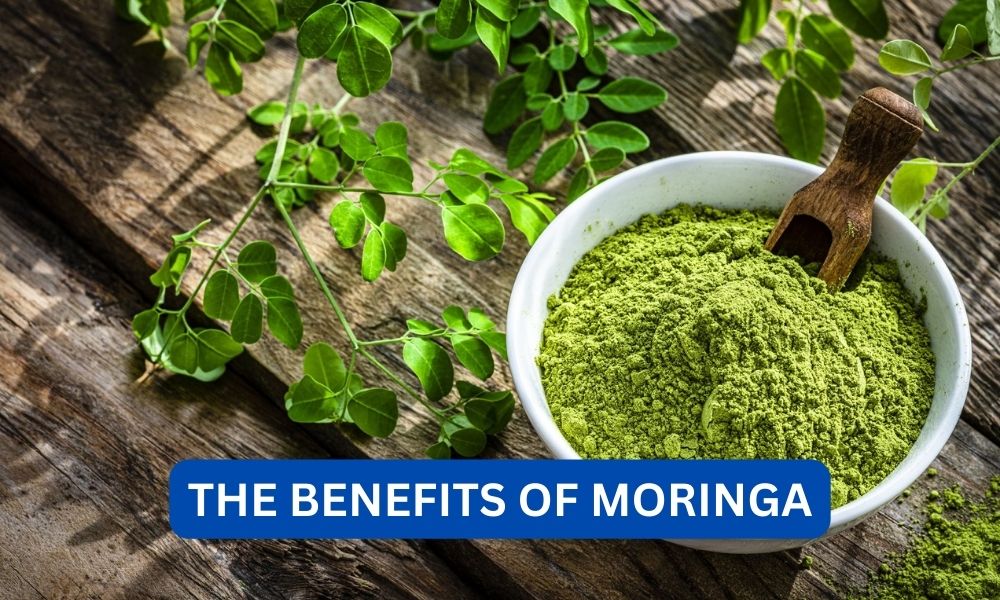Moringa, also known as the “miracle tree” or “tree of life,” has been gaining popularity in recent years as a superfood with numerous health benefits. This tree, native to parts of Africa and Asia, has been used for centuries in traditional medicine and is now being recognized by modern science for its incredible nutritional value. In this article, we will delve into the various benefits of moringa and explore why it has become a staple in many people’s diets.
Contents
Nutritional Value of Moringa
Moringa is often referred to as a superfood due to its high nutritional value. The leaves, pods, and seeds of the tree are all edible and contain a wide range of essential vitamins, minerals, and antioxidants. According to the United States Department of Agriculture (USDA), 100 grams of fresh moringa leaves contain:
- 9 grams of protein
- 2 grams of fiber
- 75% of the recommended daily intake (RDI) of vitamin C
- 22% of the RDI of iron
- 125% of the RDI of vitamin A
- 61% of the RDI of magnesium
- 41% of the RDI of potassium
In addition to these nutrients, moringa also contains significant amounts of calcium, phosphorus, and various B vitamins. It is also a rich source of antioxidants, including quercetin, kaempferol, and rutin, which help protect the body against free radical damage.
Read:What are the benefits of vitamin bHealth Benefits of Moringa
The high nutritional value of moringa has been linked to numerous health benefits. Let’s take a closer look at some of the most significant benefits of this superfood.
1. Boosts Immune System
Moringa is rich in vitamin C, which is essential for a healthy immune system. Vitamin C helps stimulate the production of white blood cells, which are responsible for fighting off infections and diseases. It also has anti-inflammatory properties that can help reduce the severity of symptoms associated with allergies and respiratory infections.
A study published in the Journal of Food Science and Technology found that moringa leaf extract has a potent immunomodulatory effect, meaning it can help regulate and strengthen the immune system. This makes moringa a valuable addition to the diet, especially during cold and flu season.
2. Improves Digestive Health
Moringa has been traditionally used to treat digestive issues such as constipation, diarrhea, and bloating. This is due to its high fiber content, which helps regulate bowel movements and promotes a healthy digestive system.
Moreover, moringa contains compounds called isothiocyanates, which have been shown to have antibacterial and anti-inflammatory properties. These compounds can help protect against harmful bacteria in the gut and reduce inflammation, which is often the root cause of digestive issues.
Read:What are the benefits of eating avocado3. Lowers Cholesterol Levels
High cholesterol levels are a significant risk factor for heart disease. Studies have shown that moringa can help lower cholesterol levels, thus reducing the risk of heart disease.
A study published in the Journal of Ethnopharmacology found that moringa leaf powder can significantly reduce total cholesterol, LDL (bad) cholesterol, and triglyceride levels in the blood. This is due to the high levels of antioxidants and plant compounds found in moringa, which help prevent the oxidation of cholesterol and promote its excretion from the body.
4. Regulates Blood Sugar Levels
Moringa has been traditionally used to treat diabetes in Ayurvedic medicine. Recent studies have shown that moringa can help regulate blood sugar levels and improve insulin sensitivity.
A study published in the Journal of Diabetes found that moringa leaf extract can significantly reduce fasting blood sugar levels and improve glucose tolerance in diabetic rats. This is due to the presence of compounds such as quercetin and chlorogenic acid, which have been shown to have anti-diabetic properties.
5. Promotes Healthy Skin and Hair
The high levels of vitamin A and vitamin E in moringa make it a valuable ingredient in skincare products. These vitamins help promote healthy skin by reducing the appearance of wrinkles, improving skin elasticity, and protecting against sun damage.
Read:What are the benefits of physical activity?Moringa oil, extracted from the seeds of the tree, is also rich in fatty acids, making it an excellent moisturizer for dry and damaged skin. It can also help promote hair growth and prevent hair loss by nourishing the scalp and strengthening the hair follicles.
How to Incorporate Moringa into Your Diet
Moringa can be consumed in various forms, including fresh leaves, powder, capsules, and oil. Here are some easy ways to incorporate moringa into your diet:
- Add fresh moringa leaves to salads or smoothies for a nutrient boost.
- Sprinkle moringa powder on top of soups, stews, or roasted vegetables.
- Take moringa capsules as a daily supplement.
- Use moringa oil as a moisturizer for your skin and hair.
It is essential to note that moringa supplements are not regulated by the FDA, so it is crucial to purchase them from a reputable source to ensure their safety and effectiveness.
Conclusion:
Moringa is a nutrient-dense superfood that offers numerous health benefits. From boosting the immune system and improving digestive health to promoting healthy skin and hair, this “miracle tree” has a lot to offer. By incorporating moringa into your diet, you can reap the many benefits of this powerful plant and improve your overall health and well-being.
So, the next time you’re looking for a nutritious and delicious addition to your meals, consider adding some moringa to the mix. Your body will thank you for it!









